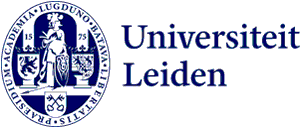
Talk and debate: how do we prevent science from harming the environment?
Sustainability researchers can play an important role in the energy transition. But what if their partners are not (yet) sustainable and science itself has adverse effects? This is the subject of an online talk by researcher Thomas Franssen on 16 December with a discussion afterwards. ‘Clean energy in Western Europe means ecosystems elsewhere in the world are destroyed.’
What angle are you taking in the talk?
‘The dominant idea both in society and among researchers is that science furthers progress. Obviously, science does contribute significantly to our well-being, but that was and is by no means always the case. From a historical perspective, for example, science has been closely linked to militarism, colonialism and capitalism, and in that sense has also contributed to the climate crisis. This perspective is nothing new by the way. Biologist Rachel Carson had already raised this problem back in the early 1960s and movements like Science for the People had emerged that voiced this kind of criticism, but this systemic criticism has faded away somewhat nowadays.’
Follow the online Liveable Planet talk and discussion on 16 December at 12.00-13.00. Three speakers – Karin Horsman (Director of Strategy and Academic Affairs), Maikel Kuijpers (Assistant Professor, Faculty of Archaeology) and Lilian Visscher (Director of Alumni Relations and LUF) – will respond to the talk and this will be followed by a discussion.
Could stricter rules help counter any excesses?
‘I don’t think it is excesses as much as systematic links between science and certain industries and governments. Scientific disciplines do not arise in a vacuum. I myself am a sociologist and sociology has developed in relation to a government that wants to govern a population. The first thing we need is awareness. A project can have a noble goal such as a clean environment or a safe public space. But the pursuit of this goal can have negative effects, here or elsewhere in the world.’
‘Universities can decide not to work on certain types of research.’
Can you give a recent example of this?
‘In the talk I give the example of an economy that runs on clean energy and needs lots of batteries for electric cars, for instance. For these you need raw materials such as lithium. Clean energy in Western Europe means there are mines in other parts of the world where raw materials are extracted and ecosystems destroyed. This doesn’t mean we should stop the energy transition and research into it, but it does mean we should look for better alternatives.’
What role should universities play?
‘Ultimately, as a university you can decide not to work on certain types of research. I can imagine doing so with topics like geo-engineering and certain AI (Artificial Intelligence) applications that could have a harmful effect. But that should be the result of an open debate, rather than the starting point. And perhaps something else will come out of such a debate. For instance, that ethical review committees are given a broader mandate to look at any possible negative effects of research projects on the environment. My lunchtime talk is meant as the start of such a debate.’
Text: Linda van Putten
Photo: Lithium mine in the US.
